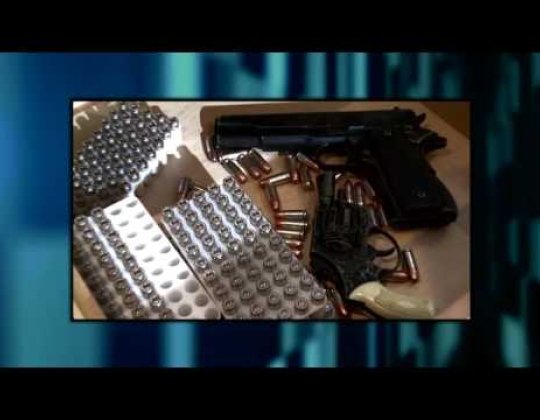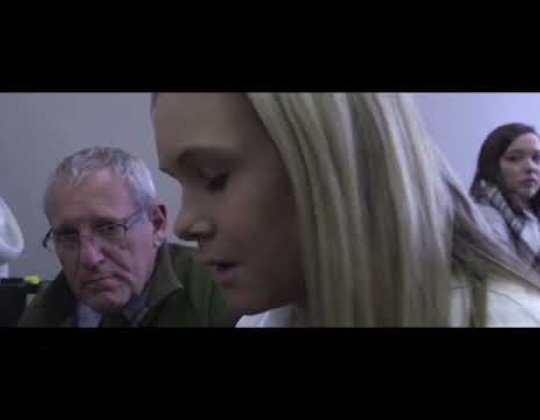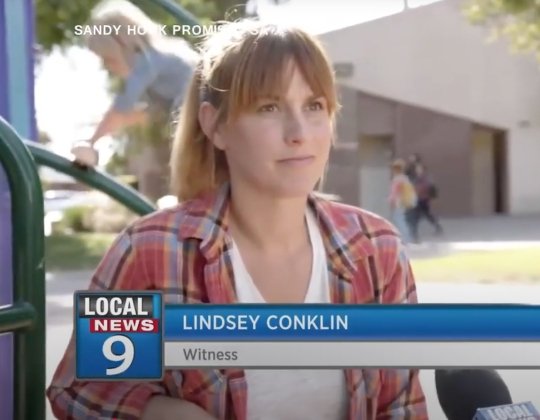
Campus Safety
Report any suspicious activity immediately.
In an emergency situation call: (914) 674-9999 or x9999
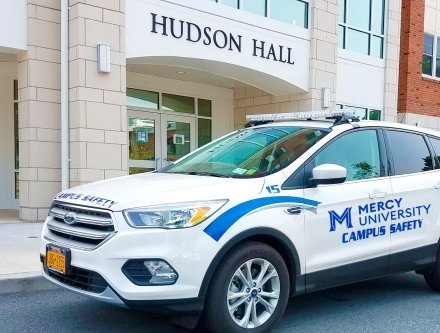
Stay Safe on Campus
The mission of the Mercy University Department of Campus Safety is to maintain a secure and open environment that fosters learning and growth for all members of the University community. We pledge to do so in a respectful and professional manner. In return, we ask that members of the Mercy University community assume their individual and collective responsibilities to assist us in our mission and help to make Mercy University the best learning environment possible.
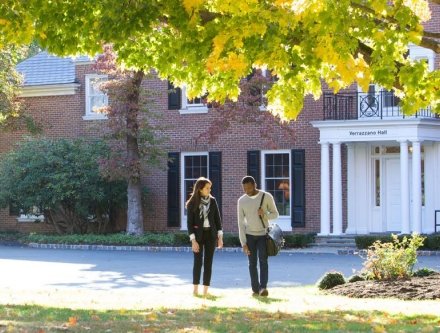
Mercy University Safety Apps
The Mavericks Safe app provides you with access to health and safety resources, emergency plans and campus support services.
Mercy Alert, our emergency notification system alerts students, faculty and staff when events, on or off campus, threaten safety. Sign up for alerts at mercy.app.regroup.com/login.
Closing Notifications
In the event that Mercy University campuses are closed or delayed due to inclement weather or other emergency information will be communicated across the following channels. We encourage all members of the University community to monitor these communication channels whenever there is a weather event.
- Email message to the University Community (@mercy.edu or @mercymavericks.edu email accounts)
- Facebook & Twitter
- Homepage of www.mercy.edu
- Mercy University Weather Hotline. Call (914) 674-7777 for a recorded message
- Local radio & TV stations
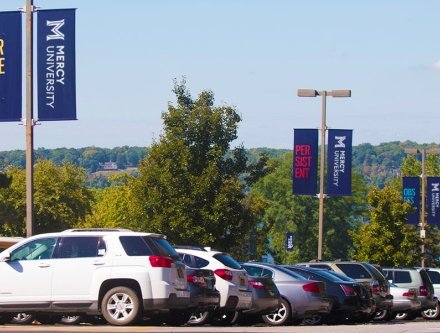
Parking & Transportation
All students, faculty and staff are required to obtain a parking permit in order to park legally at the Dobbs Ferry and Bronx Campuses. Students may obtain a permit from the Students Services Office
Information for students about parking on campus and transportation options available to students.
Emergency Response Plans
Fire Safety Information
- Know the location of emergency exits
- When you hear the fire alarm evacuate the building immediately, even if you believe it may be a false alarm
- Do not prop open hallway doors which have automatic closing devices. Automatic closing doors are designed to prevent the spread of fire
- Initiating a false fire report or tampering with fire equipment is illegal, very dangerous and will result in criminal prosecution.
Fire Safety Resources
Fire Safety Tips
- Before opening a door, feel near the top for heat. If it is cool, open it slowly
- If smoke is present, close the door and use another route
- Always close the door behind you to limit the spread of fire and smoke
- If you must go through heat or heavy smoke, crawl on the floor because heat and smoke rise
- If you become trapped, stuff a sheet or jacket under the door to keep out the smoke
- Open a window and yell for help. If there is a phone, call Campus Safety at x 7225
If a Fire Alarm Sounds
- Exit the building quickly, but do not run
- Do not stop to collect valuables
- Use normal exits if you can, but never use an elevator
- You must exit the building and stay clear of all roadways
Do not re-enter the building until you have been given permission by a Campus Safety officer or the Fire Department.
CONTACT US
Report any suspicious activity immediately.
Emergency situation (Staffed 24/7)
(914) 674-9999 or x9999
Non-emergency situation (Staffed 24/7)
Dobbs Ferry - (914) 674-7225
Non-emergency situation (Staffed during work hours)
- Bronx - (718) 678-8983
- Manhattan - (212) 615-3319
Locations
- The Department of Campus Safety is located in Main Hall 234 and is open 5 days a week from 9 am - 5pm.
- The Command Center in Founders Hall is staffed 24 hours a day, 7 days a week.
Active Shooter Resources
Everyone at Mercy University should be familiar with how to respond to an active shooter incident, whether you are on or off campus. Although rare, active shooter incidents do occur. Be prepared and have a plan. Please review the protocols within the University’s Emergency Response Guide as well as the following active shooter resources from the US Department of Homeland Security.
Additional Campus Safety Resources
Preventing Theft
Theft is usually a crime of opportunity and is the most common crime on any college campus. The best means of prevention is to reduce or remove the opportunity:
- Whenever you leave your office, laboratory or residence hall room lock the door and all windows
- Never prop open locked doors to buildings. Do not let persons whom you do not know into the building
- Never loan your keys or ID card to anyone
- When storing a purse or backpack in an office, put it in a file cabinet or drawer and lock it
- Do not leave backpacks, purses or briefcases unattended in public places
- Record serial numbers and descriptions of your valuables
- Do not keep large sums of money, jewelry or valuable items in your room or office
- Take your valuables home when you leave on vacation
- Do not leave messages on your door indicating that you won't be back for a period of time
- Do not leave your room unlocked while you are sleeping or when you leave your room, even if it's "just for a minute"
- Engrave personal property with your driver's license number
- If you have a computer or other expensive equipment in your office, have security cables installed to lock it down. Call the Help Desk to arrange installation of cables.
Personal Safety
- Lock your residence room or office door whenever you leave
- Do not prop open locked doors (doing so is a violation for the College's Standards of Conduct, as well as fire regulations)
- Do not walk alone at night. Walk with a friend
- Should you decide to walk alone, choose a route that avoids dark and vacant areas
- Have your car or house key ready before getting to the door so that you are not delayed by fumbling to find it. Before getting into your car make sure that no one is hiding inside. When you get into the car, lock all doors and roll up the windows
- Park your car in a well-lighted area
- Sales people are not allowed to solict on campus. If a salesperson comes to your residence, call Campus Safety immediately.
- If strangers who look suspicious are in the residence hall, call Campus Safety
Common Scams
The following has been adapted from guidance provided by the Financial Industry Regulatory Authority (FINRA):
The public should be aware of job-search scams in which people who respond to ads or online job postings receive checks that appear to be from legitimate companies. The type of job can vary—models, mystery shoppers, data entry personnel or some other type of independent worker. But one element is always the same: In each of these scams, you are sent an authentic-looking check.
In many instances, these fake checks will feature the name of a real company—although often not the company that purportedly hired you, which should be your first red flag. They also might use real account and routing numbers. In the most common version of this scam, the sender instructs you to deposit the check into your bank account and then almost immediately transfers a portion of the money to someone else. That's your second red flag. Days later, your bank informs you that the check was counterfeit and that you are liable for the amount withdrawn, usually several thousand dollars. You've been scammed—and there is usually no way to recover the money you sent to a third party.
Unexpected Check Scam
Simply put, you receive a check out of the blue, perhaps by registered mail or other delivery method that requires a signature. No instructions accompany the check—but once you deposit the check, you may further entangle yourself with the fraudster. For example, you might be liable for the amount of the counterfeit check, your endorsement might give your account information to fraudsters, or you could receive follow-up attempts to “phish*” for personal financial information—or some combination of the above.
Mystery Shopping Scam
Fraudsters lure victims by posting ads for mystery shoppers in job classifieds, such as on the popular website Craigslist. When victims respond to the ads, they are led to believe that they have been hired as mystery shoppers to evaluate the services of money transfer companies, such as MoneyGram. Victims are then sent checks that appear to be from legitimate companies and instructed to deposit the checks in their bank accounts, then withdraw most of the money and wire it to someone else—often a purported fellow mystery shopper. Victims are told to keep several hundred dollars of the money as payment. When the checks are later discovered to be phony, the banks reverse the deposit and the victims are left liable for the money withdrawn, usually several thousand dollars.
Modeling Scam
Typically this scam starts with a victim responding to an online posting—or the victim may have posted information online, such as with a modeling clearing house. Either way, the victim eventually gets "hired" by the fraudsters to model and receives an email with instructions. Similar to the mystery shopping scam, the victim then receives a legitimate looking check and is told to cash the check, wire some portion of the proceeds to a third party—such as a "supervising crew"—and keep the remainder as payment.
Campus Safety will make every effort to return any property to its rightful owner, however, it is your responsibility to claim the item in a timely fashion. You must present photo ID in order to claim any property, lost ID cards notwithstanding. Any items not claimed after 60 days will be destroyed or donated to charity when possible.
The Hudson Hall Security Office located in the Hudson Hall building is the central repository of all found property. If an item has been lost or misplaced, immediately contact the Hudson Hall Security Office at 914-674-7489 24 hours a day.
If we are able to identify the owner off found property, an email with the subject 'Mercy College Lost and Found Property' will be sent to the student, staff, or faculty College email address.
Turning in Found Items
If you find an item anywhere on campus, notify Campus Safety at 914-674-7892 and an officer will be dispatched to the location to retrieve the found property. You can also stop by the Hudson Security Office located in Hudson Hall to drop off the lost item. The officer will prepare an incident report and ensure the property is returned to its rightful owner.
Report Lost Items
If you have lost an item, please contact Campus Safety at 914-674-7892 to report it missing. Our staff will take a report of the missing item and notify you if an item matching the description is turned in.
Campus Safety Contact Information
Contact Us
Report any suspicious activity immediately.
Non-emergency situation (Staffed 24/7)
Dobbs Ferry - (914) 674-7225
Non-emergency situation (Staffed during work hours)
- Bronx - (718) 678-8983
- Manhattan - (212) 615-3319
Locations
The Department of Campus Safety is located in Main Hall 234 and is open 5 days a week from 9 am - 5pm.
The Command Center in Founders Hall is staffed 24 hours a day, 7 days a week.
Annual Campus Safety Report
The Clery Act requires all postsecondary institutions participating in federal student financial aid programs to disclose campus crime statistics and security information to the public.
Mercy College's Annual Security Report includes reported campus crime statistics for the past three years as well as information about campus safety polices and protocols. Mercy College is also required to disclose all fire safety information related to any on-campus student housing facilities.


